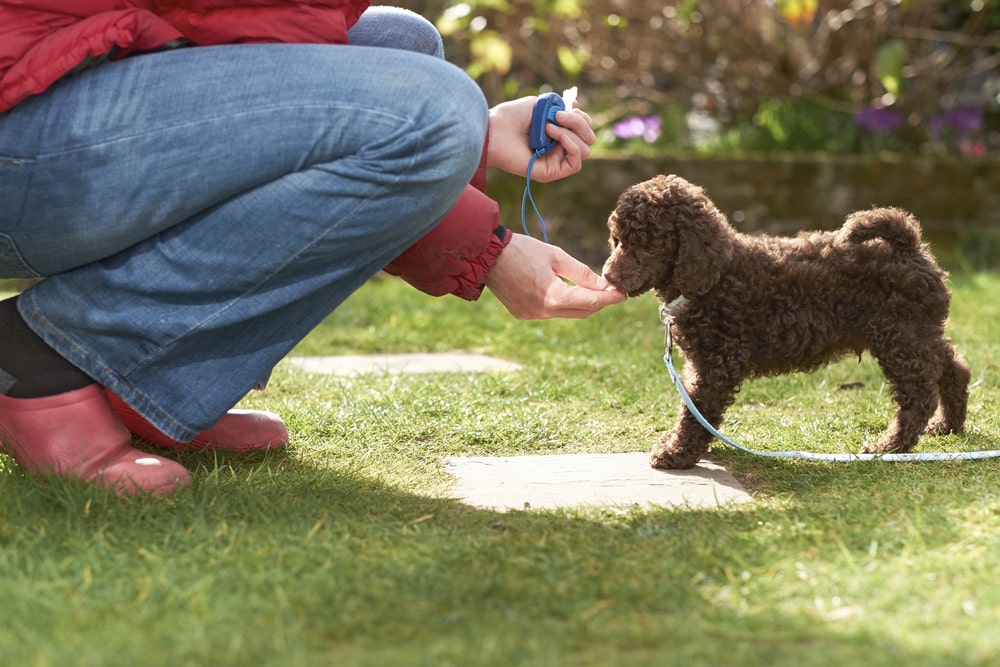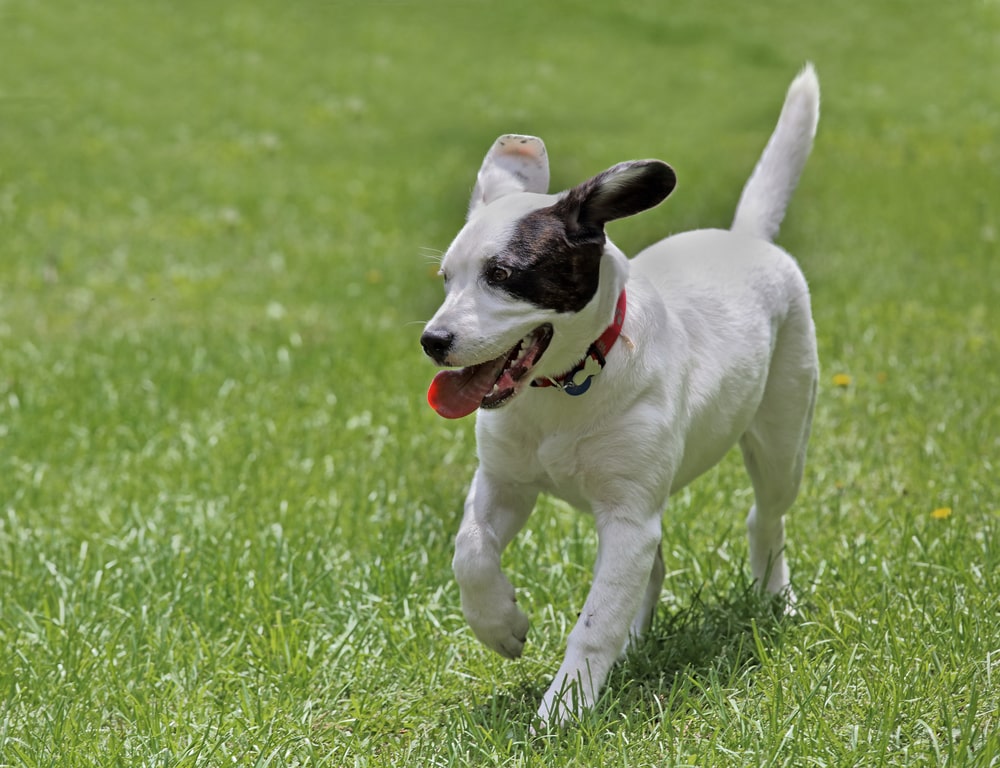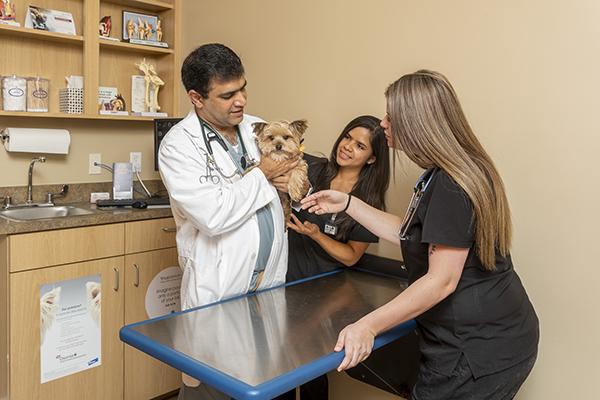
If you’ve recently adopted a new puppy, you’re probably curious if the behavior during their first year is a normal part of development. Getting a new puppy can be exciting. However, even with all of the cuteness overload, it can also be full of challenges.
What You Need To Know About Your Puppy’s Development
Learning about proper training techniques, necessary medical vaccinations, and all things puppy care during the first year can be overwhelming. Our team of veterinary professionals knows how daunting these various developmental stages can be to a new pet parent, which is why we’ve broken down the key things to consider during the first year of your puppy’s life. If you ever have any questions, never hesitate to get a one-on-one consultation with a vet.
0-8 Weeks
Neonatal
During the first few weeks of a puppy’s life, they are completely dependent on their mothers. At this stage, puppies are also blind and deaf. Typically, they are only spending their time sleeping or feeding with other pups in the pack. As puppies pass the second and third week, they then will start to open their eyes and explore their surroundings, including their fellow litter mates. For nutrition, these baby pups are still dependent on their mother’s milk but will begin weaning at around the seventh or eighth week.
When Do Puppies Have Their First Veterinary Check?
At the eighth week, puppies should have their first medical examination with a vet. Here, they may be dewormed and receive any necessary vaccinations.
8-12 Weeks
Basic Training & Socialization
After puppies are no longer dependent on their mothers, they’ll start to refine their basic motor skills and become more social with other puppies and humans. This time of socialization is also a crucial time for owners to start developing boundaries and training habits such as everyday commands and obedience training. Puppies may also start to bite more frequently at this stage as they begin teething.
What Can Help Manage Puppy Teething?
Go ahead and purchase some chew toys for your puppy at this stage so they have a resource to alleviate any discomfort from teething.

3-4 Months
Puppyhood & House Training
As puppies enter “puppyhood," house training and positive reinforcement techniques will come into play. Basic command training should be continued, and new commands or home boundaries should be introduced as your pup gets used to their new routine. Everyday home care such as providing dental chews or flea drops should also be introduced at this stage.
When Should My Puppy Be Spayed or Neutered?
Between three and five months is a great time to discuss the option of spaying or neutering with a vet.
5-7 Months
Transition to Adolescence
During adolescence, puppies will have a lot of energy. This is a great time to continue regular exercise with your puppy, such as long walks or consistent at-home play. However, during adolescence, puppies may also try to defy authority and test the limits. Their behavior may be harder to control during this period, so it’s especially important to continue regular training and socialization.
When Should a Puppy’s Diet Change?
When a puppy enters adolescence, this is a good time to change puppy food to adult dog food. Your dog will need adequate nutrition to support their continued growth.

8-12 Months
Adjusting to Adulthood
After adolescence, a puppy will no longer be a puppy. They’ll enter full-formed adulthood (or doghood) and will reach their full size during this stage of development. They’ll also reach reproductive maturity and will need unique diet adjustments based on the dog’s final size and level of everyday activity.
When Do the Series of Puppy Vaccinations End?
As puppies reach the first year mark, they’ll need an appointment with a vet to complete any of the necessary vaccinations to ensure a healthy adulthood.
After 1 Year
Continued Care & Consistency
After the first year of your puppy’s life has passed, congratulate yourself for making it past this milestone. Raising a puppy is a huge accomplishment and sets the tone for the rest of a dog’s life. The key things to remember past this point are continuous socialization with people and animals, regular grooming, consistent check-ups with the vet, and training reinforcement.
How Important Is Preventative Care for Dogs?
Treating illnesses is important, but it’s also essential to help keep your dog in good health with ongoing preventative care such as parasite medications. Ask your vet for more preventative tips.

What To Do If You’re Concerned About a Puppy’s Behavior
Puppies can have many different personalities. Some may be slower to socialize, others may be outgoing and ready to play. Just remember that shifting age levels and environments can all influence the behavior of a puppy and that change is normal. However, if you’re particularly concerned about any ongoing issues with a puppy, always schedule an appointment with a professional to discuss possible solutions.
Looking for the right veterinarian?
Contact us to schedule an appointment.
Contact us





